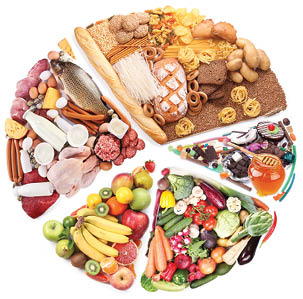
Modern lifestyle in large urban areas continues to rev up. In tandem, our inability to cope with the increasing stress is taking its toll. Not surprisingly, our health is getting compromised. The most insidious attack can come from a most silent killer - heightened Blood Pressure, which often creeps up on unsuspecting individuals. Elevated Blood Pressure can lead to a greatly increased risk of heart attack, stroke and many other serious illnesses - such as Type 2 diabetes. Sustained excessive pressure can damage blood vessel linings, leading to atherosclerosis. Alarmingly, the red light on the dashboard often does not show up till it is too late. A cocktail of factors like stress, alcohol, smoking, obesity and lack of physical activity, sometimes compounded by family history and age, can prove to be very heady – even deadly. High Blood Pressure (BP) has now reached epidemic proportions. According to WHO, one in three adults worldwide has been impacted – with the total number having crossed the billion mark a few years ago. This condition alone causes around half of all deaths from stroke and heart disease. In some age groups, the risk of cardiovascular disease can double for each increment of 20/10 mmHg (systolic/diastolic) of Blood Pressure, starting from as low as 115/75 mmHg. All studies indicate a direct correlation of Blood Pressure with lifestyle choice. Quitting cigarettes, losing weight, increasing exercise and making dietary changes can dramatically reduce Blood Pressure. In addition, regular practice of mindfulness meditation, ‘Tai Chi’ or some relaxation therapies has shown significant benefits - in terms of it helping reduce both the systolic and diastolic Blood Pressure.
Tip of the Week
Despite all the serious consequences of sustained high Blood Pressure, the good news is that it is preventable, and even reversible. Taking proactive measures, like maintaining a healthy balanced diet and enjoying an active, healthy lifestyle can help avoid unnecessary risks. It is important to get Blood Pressure checked every 4-6 months – especially since it does not show any overt signs and is usually detected a little too late. From a dietary perspective, a high fibre, plant-based diet, rich in fruits and vegetables (upto 6 servings a day) is most helpful. Excessive consumption of ‘sodium’ (common salt) has to be watched. If possible, for high-risk individuals, the ‘DASH’ (Dietary Approaches to Stop Hypertension) diet recommendations should be followed. In general, high-protein foods that have been aged or pickled or fermented should be avoided. Animal fats should also be avoided…as should the consumption of highly processed foods. The ingredient lists of foods must always be scanned for ‘salt’ as well as for any form of ‘Sodium’ (symbol: Na). Avoid taking Aspartame-based artificial sweeteners. Certain medications, like antihistamines or Over-The-Counter (OTC) products that contain ibuprofen, must be taken under medical advice.
Nature’s Wonder Food(s) of the Week: Natural Foods to control Blood Pressure
Natural foods - several herbs and spices - can offer a high antioxidant and anti-inflammatory punch. Herbs have a low calorie content and can increase the medicinal value of food by lowering Blood Pressure in a more natural manner. They can also easily be mixed in soups, salads, fish, meat and vegetable dishes. As per a 2012 report in the Journal of Nutrition, Beetroot Juice has been shown to be effective in controlling Blood Pressure even in normal, healthy adults. Fresh Garlic has been found to lower Blood Pressure, by as much as 5% to 10%. Antioxidant flavonols, such as Quercetin in onions or Carvacol in oregano, can also help. High Omega 3 Fish Oil – especially with high DHA (Docosahexaenoic Acid) content - is very beneficial. For vegetarians, organic Flaxseed Oil is a very good option. Spices & herbs that have been used for centuries by traditional healers to reduce Blood Pressure include: Basil, Beetroot Juice, Cardamom, Cat’s Claw, Cayenne (Capsicum), Chamomile, Cinnamon, Garlic, Fennel, Hawthorn, Hibiscus sabdariffa L tisane, Kelp, Parsley, Mistletoe and Rosemary. Three specific herbs have attracted much attention in recent trials: an extract made from the Iranian herb Achillea wilhelmsii; an Ayurvedic herb Eclipta alba (also known as Bhringraja or Keshraja; and a proprietary Ayurvedic herbal combination containing Terminali arjuna.
While there is thus no need to excessively rely on ‘Health Supplements’ (pills & capsules), selective supplementation with CoQ10, Calcium, Magnesium, Potassium and Vitamins C, D and E and B Complex (especially Folate & B6) can be considered. High-repute brands containing Theanine (from Black Tea), Green Tea extract, BGA (Blue-Green Algae), GABA (Gamma-aminobutyric Acid) or Lipoic Acid combined with Carnitine, L-Glutamic Acid and L-arginine are some other options. These should, however, be considered only under advice from a health practitioner, as some of them can have interactions with prescription drugs.
For Education purposes only; always consult a Healthcare Practitioner for medical conditions
Read More...